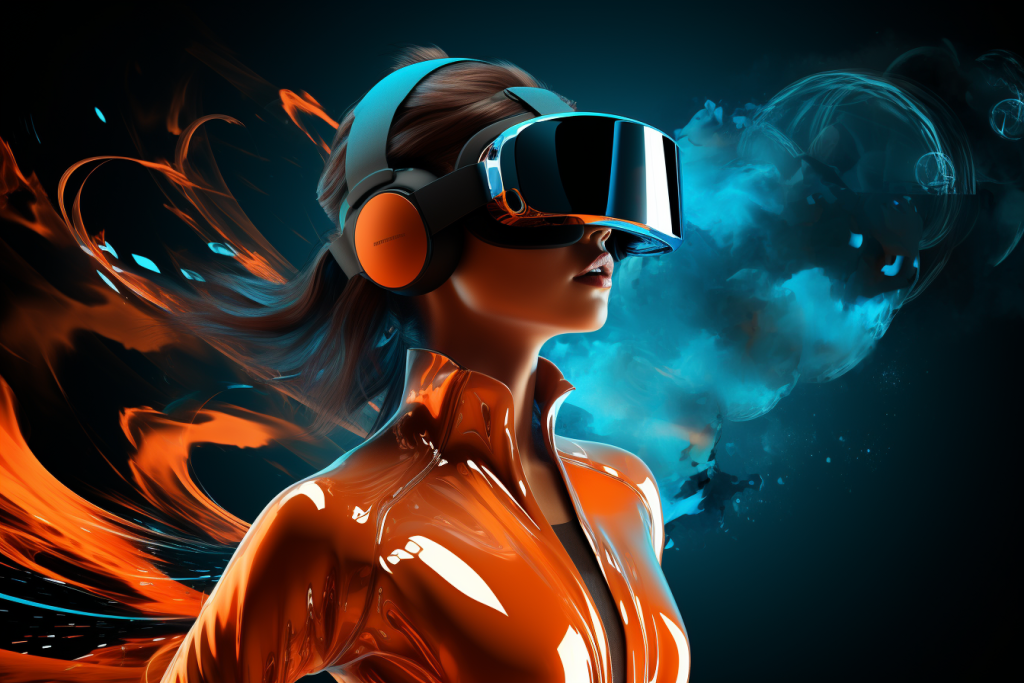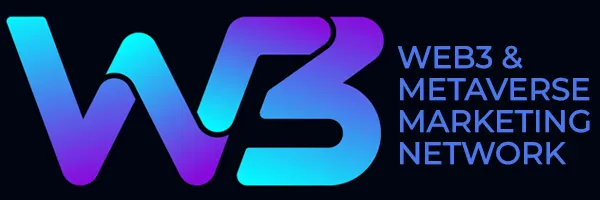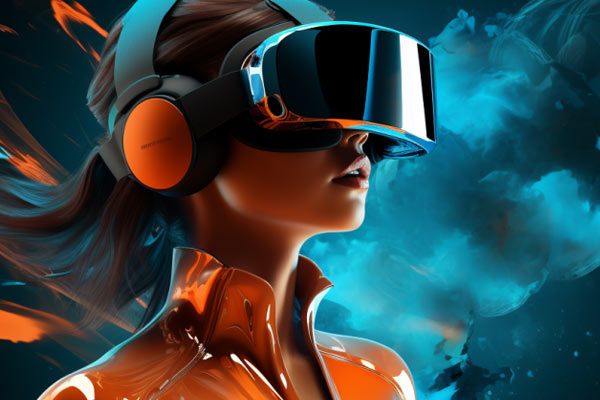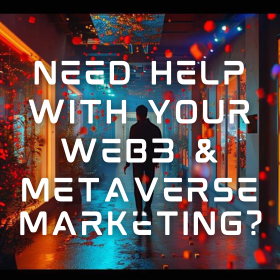
The Metaverse refers to a virtual universe or collective virtual shared space where people can interact with a computer-generated environment and other users in real-time. It’s a convergence of augmented reality (AR), virtual reality (VR), blockchain technology, and other immersive technologies. The concept of the Metaverse was popularized in science fiction and has gained significant attention in recent years.
Potential for Marketing:
- Immersive Brand Experiences: The Metaverse offers marketers the opportunity to create immersive and engaging brand experiences. Companies can design virtual spaces where users can interact with their products or services in unique ways, allowing for more memorable and impactful brand experiences.
- Virtual Events and Experiences: The Metaverse provides a platform for hosting virtual events, conferences, and exhibitions. Brands can leverage this technology to reach a global audience, offer interactive experiences, and create new forms of entertainment, all while reducing physical constraints and costs associated with traditional events.
- Product Placement and Virtual Commerce: In the Metaverse, brands can integrate products and services directly into virtual environments. This allows for innovative product placement opportunities and seamless virtual commerce experiences. Users can explore and purchase virtual items, accessories, or even try out virtual versions of physical products.
- Personalized Advertising and Targeting: The Metaverse enables marketers to gather rich user data and preferences, allowing for highly targeted and personalized advertising. By leveraging user interactions and behaviors within the virtual space, brands can deliver tailored messages and experiences that resonate with individual users.
Examples of Companies Using the Metaverse for Marketing:
- Fashion and Retail: Fashion brands like Gucci and Burberry have ventured into the Metaverse by collaborating with platforms like Roblox to create virtual fashion collections and branded experiences. Users can explore and purchase virtual versions of their products and accessories, allowing for new revenue streams and expanding brand reach.
- Entertainment and Gaming: Companies in the entertainment and gaming industry are actively embracing the Metaverse. For instance, Fortnite, a popular online game, has hosted virtual concerts featuring renowned artists like Travis Scott and Marshmello, attracting millions of users. Brands have partnered with gaming platforms to promote their products through in-game events and collaborations.
- Real Estate and Home Design: Real estate companies are utilizing the Metaverse to offer virtual property tours and showcase architectural designs. Companies like Sotheby’s International Realty have partnered with VR platforms to provide immersive home buying experiences, allowing potential buyers to explore properties remotely.
- Social Media and Communication: Social media platforms like Facebook are investing in Metaverse development, aiming to create virtual social spaces where users can connect, communicate, and share experiences. Brands can leverage these platforms to engage with users and build communities around their products or services.
It’s important to note that the Metaverse is still in its early stages, and its full potential is yet to be realized. As the technology evolves, marketers will need to adapt their strategies to leverage the unique opportunities and challenges that the Metaverse presents.
Overall, the Metaverse holds immense potential for marketers to create immersive brand experiences, host virtual events, enable virtual commerce, and deliver personalized advertising. It is an exciting space to explore, offering new ways to engage with consumers and build meaningful connections in the digital realm.










